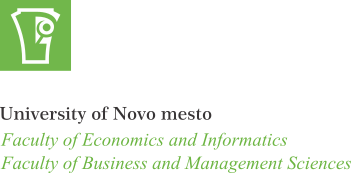The Importance of Economic Integration and Trade Liberalisation, Using the Example of the Trade Agreement between the EU and Mercosur Countries
DOI:
https://doi.org/10.55707/eb.v9i1.111Keywords:
trade agreement, globalisation, liberalisation, EU, MercosurAbstract
Globalisation increases the closeness of national markets and the interdependence of countries around the world, which means that all countries develop their economies according to uniform rules and regulations established by international organisations. The universal need for countries to export some goods and services leads to trade liberalisation, which in turn promotes regional integration. Trade liberalisation is considered a key policy of globalisation. The overall objective of trade liberalisation is to increase the rate of economic growth of countries on a sustainable basis, consistent with the achievement of other macroeconomic objectives. One of the main objectives of liberalisation is to make economies more open to trade and investment, so that they can integrate more directly into the regional and global economy. The EU is strengthening access to open markets through its own enlargement, by welcoming new members into the integration, and by concluding economic integration agreements with other countries around the world. The purpose of the FTA between the EU member states and Mercosur is to gradually liberalise trade in goods and services and to open up the public procurement markets of the parties. The research discusses the basis for the emergence and importance of a regional trade agreement between the EU and Mercosur members, and analyses the volume of trade on the basis of data.
References
Ahtik M., Mencinger J. (2012) Ekonomika evropske integracije, GV Založba, Ljubljana
Baltensperger M., Dadush U. (2019) The European Union-Mercosur Free Trade Agreement: prospects and risks; Policy Contribution, Issue n˚11. Dostopno na: https://www.bruegel.org/2019/09/the-European-union-mercosur-free-trade-agreement-prospects-and-risks/ (Pridobljeno 9.12.2020)
Bhandari P.(2021) Correlation Coefficient. Types, Formulas & Examples. Dostopno na: https://www.scribbr.com/statistics/correlation-coefficient/ (Pridobljeno 6.12.2020)
Berkum S.(2015), Prospects of an EU-Mercosur trade agreement for the Dutch agrifood sector, LEI Wageningen UR report 2015-036, Affiliation: LEI Wageningen UR Dostopno na: https://edepot.wur.nl/335854 (Pridobljeno 9.12.2020)
Cohn, T. H. in Hira, A. (2016). Global Political Economy: Theory and Practice. 7th Edition. Pearson, str. 234 -236. https://doi.org/10.4324/9781315659695
Damijan J.P., Kostevc Č., Redek T. (2018) Sektorska analiza predvidenih posledic trgovinskih sporazumov EU-Mercosur in EU-Japonska, Center poslovne odličnosti, Ekonomska fakulteta, Univerza v Ljubljani
EC (2020) Agri-food trade statistical factsheet, Factsheets on EU countries agri-food trade with the world, individual countries and selected regions. Dostopno na: s svetovnega spleta: https://ec.europa.eu/info/food-farming-fisheries/farming/facts-andfigures/markets/ trade/trade-country-region/trade-value_en (Pridobljeno 9.12.2020)
European Commision (2016) Comprehensive Free Trade Agreement with Mercosur, Potential gains for the EU. Dostopno na: https://trade.ec.europa.eu/doclib/docs/2016/may/tradoc_154559.pdf (Pridobljeno 13.12.2020)
EUROSTAT (2020), Brazil-EU – international trade in goods statistics. Dostopno na s https://ec.europa.eu/eurostat/statistics-explained/index.php/International_trade_in_goods_-_a_statistical_picture (Pridobljeno 17.12.2020)
FAO. 2020. The State of Agricultural Commodity Markets 2020. Agricultural markets and sustainable development: Global value chains, smallholder farmers and digital innovations. Rome, FAO. Dostopno na: http://www.fao.org/documents/card/en/c/cb0665en (Pridobljeno 14.7.2)
Franco F.C. (2021) What opportunities has the Mercosur-EU trade agreement provided for Brazil’s agrifood sector? EU-MERCOSUR TRADE AGREEMENT, Analysis of Sectoral Impacts in Brazil, Friedrich-Ebert-Stiftung, Brussels, str.22-26
Ferfila B. (2007) Zbornik o Evropski uniji -Handbook of the European Union, Fakulteta za družbene vede, Ljubljana, str. 63 -77
Hrovatin N., Kostev Č., Kumar A., Mrak M., Rant V., Šlander Wostner S.(2017) Ekonomika Evropske unije, Ekonomska fakulteta, Ljubljana
LSE (2019) Sustainability Impact Assessment in Support of the Association Agreement Negotiations between the European Union and Mercosur, Draft Interim Report: Dostopno na: https://trade.ec.europa.eu/doclib/press/index.cfm?id =2164 (Pridobljeno 13.12.2020)
Marinov E. (2015). Economic Determinants of Regional Integration in Developing Counties. International Journal of Business and Management, Vol. III(3), str. 22-39. https://doi.org/10.20472/BM.2015.3.3.003
Nguyen B.D, Vaubourg A.G (2020) Financial intermediation, trade agreements and international trade, World Economy. 2020;00:1–30, John Wiley & Sons Ltd.
OECD (2019) The changing landscape of agricultural markets and trade: prospects for future reforms, OECD Food, Agriculture and Fisheries, Papers, No. 118, OECD Publishing, Paris. https://doi.org/10.1787/7dec9074-en
Plummer G.M., Cheong D., Hamanaka S. (2010) Methodology for Impact Assessment of Free Trade Agreements; Mandaluyong City Asian Development Bank, Philippines.
Santeramo F.G., Guerrieri V., Lamonaca E. (2018) On the Evolution of Trade and Sanitary and Phytosanitary Standards: The Role of Trade Agreements, Agriculture, 2018. https://doi.org/10.3390/agriculture9010002
SICE: Trade Policy Developments: MERCOSUR – EU Background and Negotiations: Dostopno na: http://www.sice.oas.org/tpd/mer_eu/mer_eu_e.asp# Docs_negotiations (Pridobljeno 6.12.2020).
Downloads
Published
How to Cite
Issue
Section
License
Copyright (c) 2022 Journal of Economic and Business Sciences

This work is licensed under a Creative Commons Attribution 4.0 International License.





